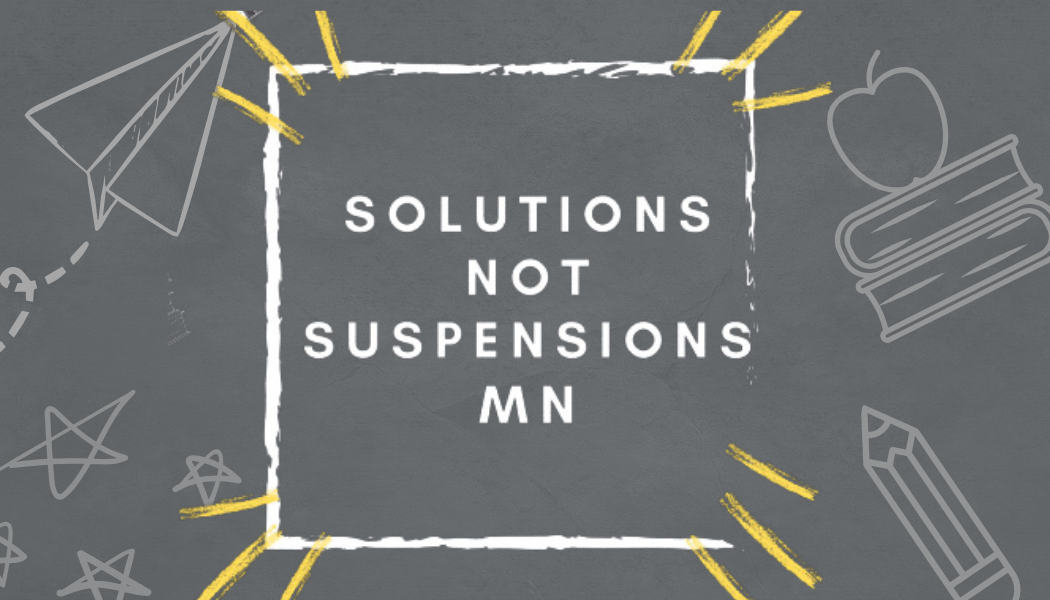
Statement on changes to Minnesota law regarding use of restraints in schools
August 29th, 2023
Earlier this year, the Minnesota Legislature made helpful changes to statute aimed at building safe school environments for all students. Until this point, despite being prohibited in jails, dangerous procedures such as the prone restraint were allowed to be used on children in schools. Prone restraint is a method of intervention in which a person's face and frontal part of their body is placed in a downward position, against any surface for any amount of time. The Minnesota Legislature, after hearing the bills in the relevant committees and going through the conference committee process, sensibly decided to ban the use of the prone restraint and other dangerous holds on children in schools, and to limit the use of more reasonable force to the rare circumstances that require it to prevent bodily harm or death.
Children deserve to feel safe at school, and without the risk of injury by adults who are there to protect them. Certain physical restraints are known to present risk of injury to children. There are proven practices that prevent occurrences of challenging behavior. When these behaviors do occur, practices to deescalate the situation that don’t involve dangerous uses of force are more effective. Most of the time, children who are presenting with challenging behaviors are doing so because they have needs that are not being met, whether it is a need for more academic support, mental health support, or otherwise. This is particularly the case coming out of the Covid-19 pandemic, which disrupted many childrens’ learning and other aspects of their lives. It is widely known that Minnesota’s children are facing steep learning gaps and mental health challenges. Our students need support, not to be subject to dangerous restraints for school-related problems such as lunchroom disputes. We owe it to them to invest in and implement preventative measures.
There are resources–some recently made available by the Legislature–for schools to support students with positive interventions, such as restorative practices and relationship building. For example, the Legislature made a historic investment in a return to the culture of restorative practices with the establishment of an Office of Restorative Practices. Each of Minnesota’s 87 great counties is now vested with the ability to locally identify how best to rebuild and re-weave our threadbare social fabric. Our unique communities are called to explore how to best support meaningful accountability for our young people by building up our capacity through steering committees that include community, law enforcement, prosecutors, and local school districts. We must do this until our instinct returns to ground youth in belonging instead of reacting with punitive isolation and dangerous restraints.
The changes that the Minnesota Legislature made have been overstated and misunderstood. As the Attorney General noted, they do not prevent school resource officers from using reasonable force when necessary to prevent bodily harm or death. The new law, however, did prohibit the use of force for the sole purpose of restraining a student when there is no immediate threat of harm or death. Students deserve to be surrounded by adults who can utilize safety techniques without resorting to prone restraint, choke holds, or other dangerous restraints. The discussion surrounding these changes has raised anxiety and fear among parents and students and community members at the start of this school year, when communities should instead be joining together to support schools to best welcome students to the new year. As one advocate stated, “if officers feel they cannot do their jobs without using procedures that are prohibited in prisons, maybe those are not the officers we should have in our schools.”
Solutions Not Suspensions is a coalition of students, families, community members, and organizations committed to changing policies, practices, and mindsets in order to end racial disparities in discipline and foster positive school climates for all students.
For more information, contact Erin Sandsmark, Coalition Programs Manager at: esandsmark@solutionsnotsuspensions.org
